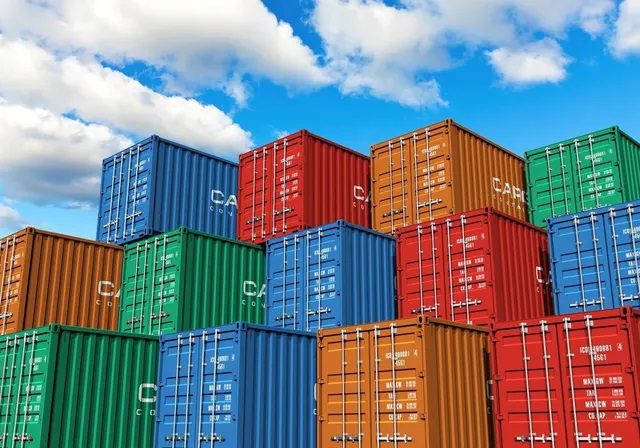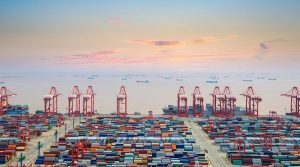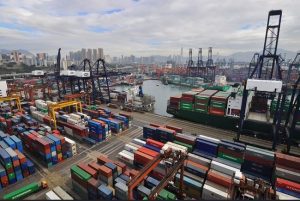BLOG
The Attractive World of Re-Export Trading Countries: Benefits and Opportunities
- wanmeili
- 2023-08-31
In the midst of a globalized economy, certain countries have positioned themselves as key players in re-export trade, serving as vital connectors between producers and consumers worldwide. Re-export trading countries, with their strategic geographical location, robust trade infrastructure, and favorable business environment, offer a range of benefits for nations aspiring to embrace this lucrative sector. Let’s delve into the world of re-export trading and explore the advantages associated with becoming one of these nations.
World of Re-Export Trading and Advantages
Strategic Location:
Re-export trading countries possess a geographic advantage, often situated in regions that serve as crossroads for international trade routes. This location enables them to capitalize on their proximity to major markets and act as distribution hubs. For instance, countries like the United Arab Emirates, Singapore, and Hong Kong have thrived due to their strategic positioning, serving as gateways connecting various continents. As a re-export trading country, such locations allow for easy access to diverse markets and facilitate efficient trade operations.
International Connectivity:
Re-export trading countries boast well-developed trade infrastructure, including modern ports, airports, and rail networks. These countries invest heavily in enhancing connectivity, and ensuring seamless transportation between various destinations. Sophisticated logistical systems streamline the re-export process, providing expedited and cost-effective movement of goods. Utilizing their superior infrastructure, these countries become attractive options for traders looking to avoid excessive shipping costs and reduce transit times.
Business-Friendly Environment:
Establishing a business in a re-export trading country typically benefits from a favorable regulatory framework, designed to attract foreign investment, facilitate trade, and promote entrepreneurship. These countries often implement simplified customs procedures, tax incentives, and transparent legislation to encourage international commerce. By offering an investor-friendly environment, re-export trading nations foster a conducive atmosphere for entrepreneurs, assisting them in expanding their businesses and increasing profits.
Global Market Access:
By operating as re-export trading countries, nations gain a broader perspective of global markets and benefit from increased exposure to a wide range of products. These countries act as conduits for transiting goods from one country to another, enabling access to a diverse array of merchandise. Consequently, this exposure to global products cultivates a platform for businesses to broaden their reach, diversify their offerings, and respond effectively to changing market demands.
Economic Growth and Job Creation:
Re-export trading countries often experience significant economic growth due to increased trade flows and investments. This growth leads to job creation and stimulates the local economy, thereby reducing unemployment rates and fostering socio-economic development. The establishment of free trade zones and investment incentives attracts multinational companies, further propelling economic prosperity in these nations.
Knowledge and Expertise:
Re-export trading countries benefit from a wealth of knowledge and expertise gained from their involvement in global trade. With the continuous influx of goods from various regions, these countries develop specialized skills in customs procedures, logistics, supply chain management, and trade regulations. This knowledge subsequently percolates through local businesses, fostering an environment of innovation and efficiency.
Some Countries and Regions Known for their Re-Exporting Activities Include:
- Hong Kong: Ranked as a global trade hub, Hong Kong is a major re-exporter due to its strategic location in East Asia. It acts as an intermediary for goods entering and leaving Mainland China, making re-exporting a significant part of its economy.
- Singapore: Another key player in re-exporting, Singapore benefits from its well-developed infrastructure and strategic location in Southeast Asia. It acts as a regional trade hub, particularly for goods moving between Asia, Europe, and the Americas.
- United Arab Emirates (UAE): The UAE, particularly Dubai and Abu Dhabi, have emerged as re-exporting powerhouses in the Middle East. The UAE’s modern ports, well-connected aviation hubs, and free trade zones have made it a prime choice for re-exporting.
- Netherlands: Known for its ports in Rotterdam and Amsterdam, the Netherlands is a major re-exporter within Europe. With an advanced logistics network and strong trade ties, it serves as a gateway for goods destined for other European countries.
- Belgium: Similar to the Netherlands, Belgium (particularly through its ports in Antwerp and Brussels) plays a key role in re-exporting within Europe. It has efficient transport infrastructure and acts as a transit hub for goods going to and from other European countries.
- Switzerland: Despite being landlocked, Switzerland is renowned for its re-exporting activities. It benefits from its efficient logistics, extensive banking sector, and favorable trading conditions. Switzerland serves as a re-exporting hub for luxury goods, pharmaceuticals, and machinery.
- Panama: Situated at the crossroads of the Americas, Panama is a prominent re-exporting country in the Western Hemisphere. It benefits from the Panama Canal’s strategic importance, acting as a crucial transit point for goods moving between North and South America.
These countries have established themselves as significant players in re-exporting, contributing to the global flow of goods and showcasing their ability to efficiently facilitate international trade.
Conclusion:
Becoming a re-export trading country offers an array of advantages for nations aspiring to embed themselves in the global trade ecosystem. The strategic location, well-connected infrastructure, business-friendly environment, global market access, economic growth, and expertise associated with these countries all contribute to their appeal. Embracing this role opens doors to unparalleled opportunities, fostering economic development, job creation, and enhanced global connectivity. As the world becomes increasingly interconnected, the allure of re-export trading countries will undoubtedly continue to grow.
What CXMM-SCM Logistics can Provide for Re-Export Trading:
CXMM-SCM Logistics is an NVOCC-certified logistics service provider which is headquartered in Shenzhen, China.
We are an integrated logistics services provider for both import and export cargo movements which has a warehouse located in Hong Kong, efficient to handle the re-export products.
You can still depend on us as your reliable and sustainable logistics partner in China.
In addition to the traditional FCL/LCL and air freight shipments, our services also include the following services that you may be interested in:
- DHL/FedEx/UPS safe and stable express account
- Consolidated Warehouse-Shenzhen
- China-Hongkong dedicated line
- China handling agent & local haulage trucking
- Product sourcing and supplier verification
- Cargo Insurance and Purchase Import Bond
- Customs clearance and documentation assistance
- USD-CNY paying to factories on behalf of service
- Ex works and door-delivery services all around China
If you have any shipments to/from China, please feel free to call us at +86 15574486805 or Email:jessicakuang@cxmm-scm.com. It will be our great pleasure to be your partner in China.



